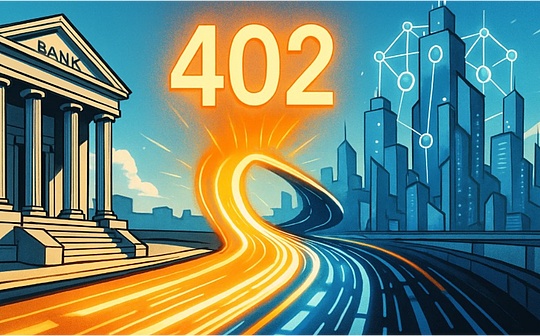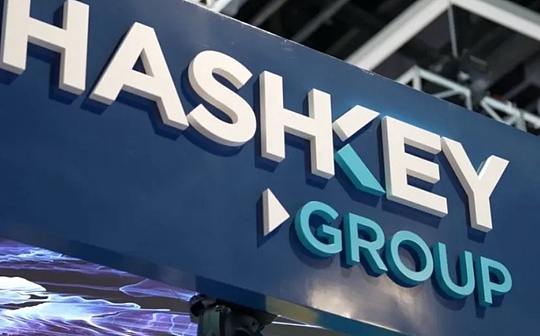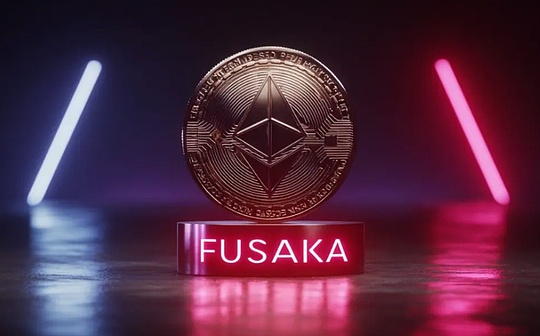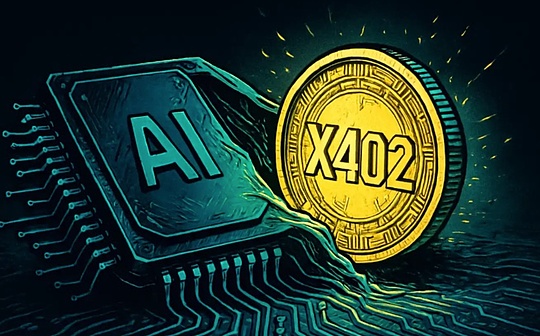
Author: Bitchain Vision Reporter Jessy
In the beginning of 2024, the privacy track ushered in the heavy hammer of the exchange.First, OKX removed tokens including XMR, Dash, ZEC, Zen, and then Binance was removed from XMR on February 20.
In the exchanges officially given the reason, Binance said that “the deposit of Monroe currency is from an open and transparent address”, OKX is “touching the offline rules and possible high -risk projects.”
The real reason for these privacy tokens is the need for “avoiding supervision”.
This is not the first time that the exchange has removed the privacy token.Binance has removed privacy to some regions, and exchanges have collectively removed privacy tokens in South Korea and so on.
The exchanges removed the privacy of the privacy currency will undoubtedly reduce the liquidity of the privacy token and reduce the acquisition.The situation where the privacy of the privacy was removed was even more fundamentally reflected that the encryption industry was sacrificing the privacy currency as the investment to the regulatory authorities.
What needs to be reflected by ordinary users behind this phenomenon is, is the demand for privacy?Has the privacy of privacy in addition to regulatory factors have been abandoned by the market?And the development of the privacy track behind the privacy tokens?
Privacy demand is real demand
As the highest acceptance of tokens in the crypto industry, it is not completely anonymous.Bitcoin is an open centralized ledger, and the user address and balance are completely transparent on the chain.In other words, when you learn the corresponding Bitcoin address of a user, all transactions on the chain are tracked.In the industry, by tracking and monitoring the transaction data on the Bitcoin chain to give user portraits and monitoring funds, the situation of monitoring funds is conventional operation.
The spirit advocated by Crypto’s creation period has privacy for transfer.
Therefore, for this encrypted spirit, privacy tokens are generated.Monroe coin, which was born in 2014, is a typical tokens that meet privacy needs.In the eyes of some geeks and non -governmentalists: when facing political sanctions, the privacy of assets is very important, and Monroe Coin achieves privacy protection through the method of signature technology, hidden sites, and ring -loving transactions, thereby achieving a complete completely completePrivacy transactions.
Not only privacy, but a similar coin device Tornado Cash is favored by some giant whales, and some sophisticated giant whales will regularly use it to hide their asset status.
According to ROOTDATA data, there are currently more than 120 privacy technology -related projects, involving Layer1, Layer2, Privacy, mailboxes, DEFI, mixer, DID, VPN, social, privacy address wallets, etc., etc.
For example, privacy addresses such as UMBRA, privacy chains such as Secret, Aleo, MINA, Layer2 like Manta, StarkNet and so on.
And mainstream tokens like LTC are also favored by privacy technology. Privacy technology has been booming over the years, and mainstream VCs are also optimistic about privacy tracks.From the VC’s view, privacy is the accumulated track. In recent years, it has been sought after by A16Z, Binance Labs, SAMSUNG Ventures, Sequoia Capital and other VCs. The track valuation is as high as billions of dollars.
The supervision dilemma faced by the privacy track
Although it has a real application on the privacy track, it has been developing steadily, and capital is optimistic.But the trees are great, and the supervision has never left the scene.
Privacy currency is the first.Because of the characteristics of privacy, it is often seen in criminal activities such as dark web crimes, money laundering, and extortion.It is precisely because of the application of these black and gray products that privacy tokens are often identified by the governments of various governments.And the privacy tokens are removed by the centralized exchange, in fact, the exchanges follow the supervision, or it is a move to invest in regulatory supervision
According to a 2020 report, Australian regulators and banks encourage cryptocurrency exchanges to remove Monroe coins, otherwise they will face the risk of “disconnecting banking services”.Dubai also prohibits the use of Monroe Coins under the framework of digital asset supervision.Monroe coins are also prohibited from entering the exchange in Japan and South Korea, in order to curb money laundering and reduce organizational crimes.
In June 2018, Japan introduced the self -discipline plan of the cryptocurrency exchanges to prohibit the transaction anonymous currency.Subsequently, in November 2018, the Japan Financial Agency introduced a new standard for the establishment of cryptocurrency exchanges, which made a clear ban on cryptocurrencies with high anonymity and easy use of money laundering.South Korea was two years later than Japan. In November 2021, the implementation of legislative previews on the implementation of the legislative amendments to the Specific Financial Information Law was released.According to the implementation regulations, virtual asset service providers will prohibit transaction anonymous coins and prohibit the treatment of virtual assets with risk of money laundering, which also means that all anonymous coins assets will withdraw from South Korea.
Forced by the regulatory policies of various countries, as early as May 31, 2023 before this full -lane, Binance announced that it would stop providing users from four EU members of France, Italy, Poland, and Spain.12 kinds of privacy coins including Luo Nin, Zcash, Dash.
Not only the privacy, other agreements and applications of privacy tracks have not escaped.In 2022, Tornado Cash, a privacy application mixed coin agreement, was sanctioned by the United States.The results of the sanctions are mainly the following points: Tornado Cash is supervised, the founder GitHub account, project code library, website domain name, USDC contract, RPC service (originally provided by Alchemy and Infura) are fully banned.
It can be seen that the biggest problem faced by the privacy track is supervision, and the most direct problem of supervision is to make the trigger of these privacy products lower.However, for those who need privacy products, they will still obtain the product through other channels.But the problem is that there seems to be not so much useful for privacy.
Privacy tokens are not the only choice to meet the needs of privacy
For privacy, the biggest threat is not supervision, but other products on the track.
The first is the privacy track of mainstream tokens, which gives their token privacy functions.For example, in 2022, Litecoin Mimblewimble was implemented. Users can choose to send confidential Litecoin transactions. The amount sent is only the sender and the receiver known, and the MWEB address is allowed to hide the account balance.However, it is also the upgrade of this feature that Litecoin is delisted in South Korea because the function of Litecoin does not conform to South Korea’s anti -money laundering regulations.
In Vitalik’s published article at the end of 2022, it also proposed a privacy solution for Ethereum.And put forward the EIP-5564 protocol on Ethereum, the so-called privacy address proposal.The stealth address is a one -time wallet address that can give the ownership of user assets without exposing any wallet address and user identity.The stealth address also enables the receiver of the transaction to maintain anonymous, thereby preventing any public connection on the blockchain between the identity of the sender and the receiver.
Ethereum ecology has been using ZK technology to promote privacy protection. Vitalik has emphasized that ZK-SNARK will be as important as the blockchain in the next ten years, and Layer2, who is looking forward to Ethereum, relying on ZK technology, will be available in the past two years.Essence
It is conceivable that mainstream tokens are embedded in privacy, and they have a wider audience than privacy token.
The technology of privacy has always been progressing. At present, there are four main privacy technologies in the industry, namely zero -knowledge proof (ZK), trustworthy execution environment (TEE), security multi -party calculation (MPC), and homogenic encryption technology (HETo.The general privacy chain is implemented based on the above four technologies.Among these four technologies, ZK, MPC, and HE are based on cryptography, and Tee is based on hardware design.
Zero knowledge proves that it provides a way to prove the understanding of this set of specific information or data in an encrypted method without disclosing a set of information or data.This technology is generally recognized in the industry through ZK-Rollup in Ethereum.Zero knowledge proves that there are currently many ways to implement, such as ZK-SNARKS, ZK-Starks, Plonk, and BulletProofs.Each method has its own advantages and disadvantages in the size, proof time, and verification time.For example, the privacy agreement Tornado Cash uses zero knowledge proof.
The trusted execution environment can provide sensitive information from environmental protection users who areolate the mobile terminal. This is also the most mature technology today. The main application is Secret Network and Oasis Network.
Security multi -party calculations are that multi -party participants use privacy data to participate in confidentiality calculations without leaking their own private data to jointly complete a certain computing task.This technology can meet the contradictions between people using privacy data for confidentiality calculation, effectively solving the “confidentiality” and “sharing” of data.At present, in the field of MPC, the main technologies used are key technologies such as secret sharing, inadvertent transmission, confusing circuit, same -state encryption, zero -knowledge certificate, etc. At present, the most widely used in the industry is in the industry.Essence
The same -state encryption technology is concerned about data processing security, which provides a function of processing encrypted data.In other words, others can process encryption data, but the processing process will not leak any original content.On some public chains, this technology will be used, and the confidential blockchain driven by the same state encryption will receive a $ 7 million seed wheel financing last year.This is one of the more public chain solutions that the institution is sought after after the ZK heat.
It can be seen that privacy technology has actually embedded all aspects of the encrypted ecology.For users, in order to meet their privacy needs, privacy tokens are not the only choice.
The era of privacy is past, but there is no privacy track
The concentrated development of privacy and from 2014 to 2017, the development of projects and technology has matured, basically there are no technical barriers, and the competition between privacy currency is fierce.
However, for ordinary users, the technical threshold it uses is still high, and the popularization rate among encrypted users is low.Moreover, privacy demand is not bought by the market. Coupled with the siege of supervision, the privacy tokens are indeed not so popular. It is slowly becoming a small number of great customers.
Dr. Duncan S.wong, the core technology developer of Monoro, once said that absolute privacy is no longer welcomed, and fully privacy, regulatory and audit institutions can accountable privacy for privacy and audit institutionsThe encrypted token will gradually move towards the mainstream.
Even in the dark web market, the most mainstream trading currency is Bitcoin.而在真实的应用上,人们其实还是更愿意用类似Tornado Cash这样的混币器去藏匿自己的交易行为和钱包地址,因为这可以让用户使用其常用的主流货币去交易,而不是难用且Private currency with poor liquidity.
And most users holding privacy currency are not to meet their privacy needs with tokens, but to be optimistic that there will be a high room for rising in the future.And the mixed coin device is different, users are all users who meet the needs of privacy.
From this point of view, for users, privacy currency is not a choice to meet the economic practicality of privacy needs. After all, it is the cost of all currency users that share privacy to meet privacy needs.
And the privacy currency is a victim of the industry that allows cryptocurrencies to move towards the mainstream.In the face of the development of cryptocurrencies, supervision cannot do nothing, and the crypto industry sacrifice privacy.It can be seen from the centralized exchange.
The public acceptance of a very popular public will not be high, not only in the field of cryptocurrencies, but also in other aspects of the real world.
Privacy currency may become a sacrifice in the process of the encryption industry, but the encryption technology will not stop developing, and it will definitely be used in encrypted projects.Privacy tracks are still one of the important tracks of the industry.








